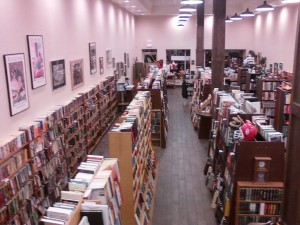Books have been written about plots and counterplots, conspiracies, and terrorist attacks. I have shelves lined with them. Books have been written, both factual and those built from the imaginations of their authors.
Whether the young men accused in the Boston Marathon bombing are guilty of executing that event, or not, is a matter for the courts, at least for the surviving brother. Without question, they have already been tried in some corners of the media. Other corners will assume them innocent on grounds that authority figures will resort to any measures to bring about a conclusion, including fabricating evidence to support charges.
What cannot be denied is this: we are living in a world consumed with immediacy, social connectivity, and the capability for relentless recording and dissemination of video.
Whether we agree with the practice or not, we – as citizens – have events of our daily lives recorded with remarkable regularity. Look up at a traffic-lighted intersection. Chances are, there is a camera in place, the focus set on your vehicle and recording your activities at that moment.
Moments later, your actions will be caught by another camera at another intersection. And it isn’t just traffic. Store owners and those who have been victimized in particular, are increasingly adding cameras to their electronic loop of security protection. Admittedly, there are areas that cannot rationalize the cost of cameras versus the relative low crime risk. What it amounts to is this: you may be able to run red lights with reckless abandon in rural America without risk of being recorded and/or prosecuted for the violations. (It’s also a lot less risky to run a red light in rural America.)
The idea that a terrorist crime could be committed in a major metropolitan area without some camera being in the vicinity is almost far-fetched. A relative in Chechnya was quoted as saying the accusations against his sons for the Boston explosions amounted to science fiction. It remains to be seen whether those sons are the ones responsible for the bombings, but it would be science fiction to believe (in our current state of technology) that activities at major public events could escape being captured by video.
Not just a random camera.
Look at Facebook. Pictures. Videos. Public. Private. Shameless and shameful. It is proof without question that the lives of the public in general are being recorded from almost every angle imaginable. All day. All night.
There are corners of the world that don’t have the same reverence and respect, adulation, envy, and accumulated indebtedness owing to the world of the cellphone. The US is not among them.
Whatever we may believe about privacy and our own lives, we should have – by now – learned that someone is taking our picture right now either for something we are doing, or something someone is doing nearby. We may only be in the background, but there we are, ready for computer enhancement and identification. Tagging, Facebook calls it.
Even as those who disagree with the technology will complain, they will also have to admit that there is some small measure of reassurance that the risk of being recorded may give pause to some who might consider conducting attacks like the Boston Marathon bombing.
On one hand, it is remarkable that within the course of a business week, an anonymous assault can result in the identification and arrest of a suspect. On the other, it is almost astonishing that anyone in the techno-savvy part of the world could believe it possible to slink away into the shadows without being captured – with authorities completing what was begun by the cameras.
